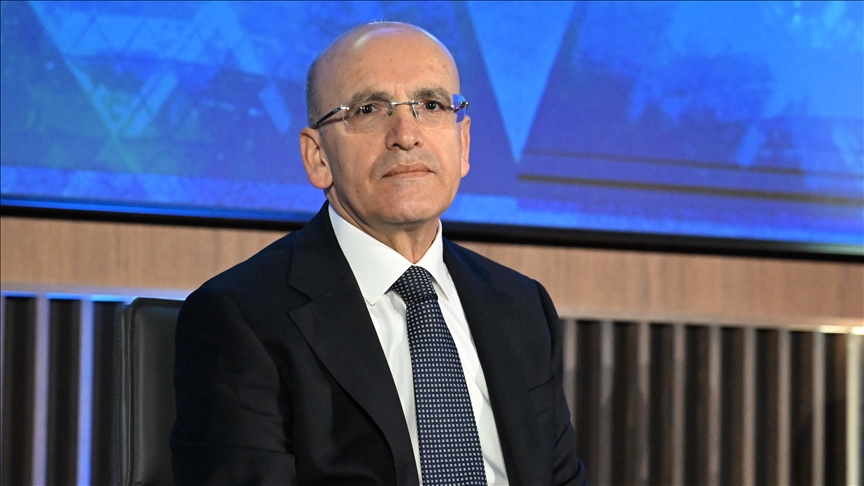Türkiye analyzes effects of rising geopolitical tensions on economy: Finance minister
'Our institutions ready to take necessary measures quickly and decisively, in strong coordination, to maintain stability in markets and healthy functioning of our economy,' Mehmet Simsek says

ISTANBUL
Türkiye's Finance Minister on Monday said that they are analyzing the multidimensional effects of increasing geopolitical tensions on the Turkish economy and evaluating possible scenarios in detail.
"Our institutions are ready to take the necessary measures quickly and decisively, in strong coordination, to maintain stability in the markets and the healthy functioning of our economy," Simsek said on social media.
The minister asked the Turkish citizens to not believe in speculations made about the Turkish economy based on scenarios in case the Hormuz Strait is closed.
"With our program, we have significantly increased the resistance of our economy to shocks," Simsek noted.
He added that Türkiye is determined to fight inflation and will continue to take all necessary steps to prevent disinflation.
The regional tensions in the Middle East escalated on June 13 when the US-backed Israeli military conducted airstrikes on Iran, prompting Tehran to launch retaliatory attacks on Israel.
Israeli authorities said at least 25 people have been killed and hundreds injured since then in Iranian missile attacks.
Meanwhile, in Iran, at least 430 people have been killed and more than 3,500 wounded in the Israeli assault, according to the Iranian Health Ministry.
The conflict escalated further after the US bombed Iran's three nuclear facilities on Saturday.
The US targeted the sites with six bunker-buster bombs dropped on the Fordo facility with B-2 stealth bombers, along with dozens of submarine-launched cruise missile strikes on the Natanz and Isfahan facilities.
The latest move by the US sparked fears of Iran closing the Hormuz Strait, where 30% of the global crude oil and 20% of the liquefied natural gas (LNG) are transported.
Iran's Parliament agreed to close the Strait of Hormuz on Sunday, waiting for a final decision from the Supreme National Security Council, Major General Esmaeil Kowsari, a member of the parliament’s National Security Commission, said.








